Osaka: Kansai Airport Marks 30th Anniversary; Consortium Oversees Post-Pandemic Rebound
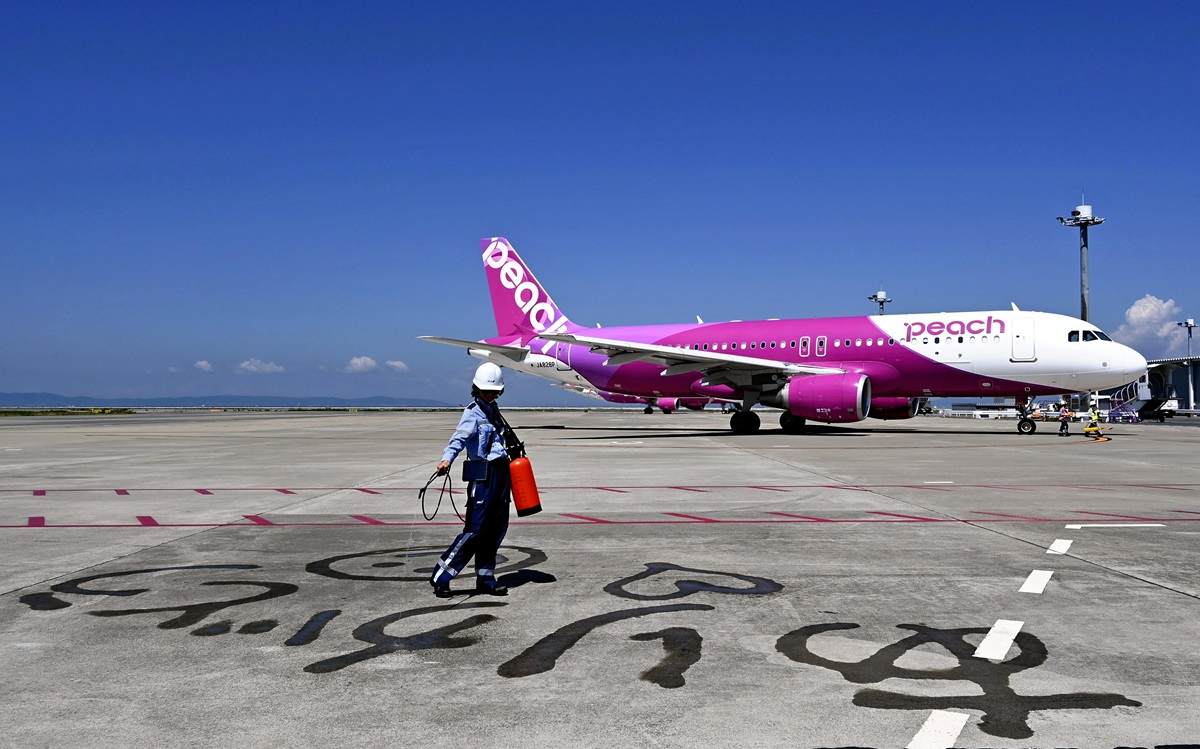
A staff member writes “Thank you” in Japanese with water on the tarmac at Kansai Airport in Izumi-Sano, Osaka Prefecture, on Sept. 4, the 30th anniversary of the airport.
6:00 JST, September 30, 2024
IZUMI-SANO, Osaka — Kansai Airport has recently celebrated its 30th anniversary. Supported by a growing number of foreign tourists visiting Japan, the airport has become increasingly important as a gateway to the Kansai region.
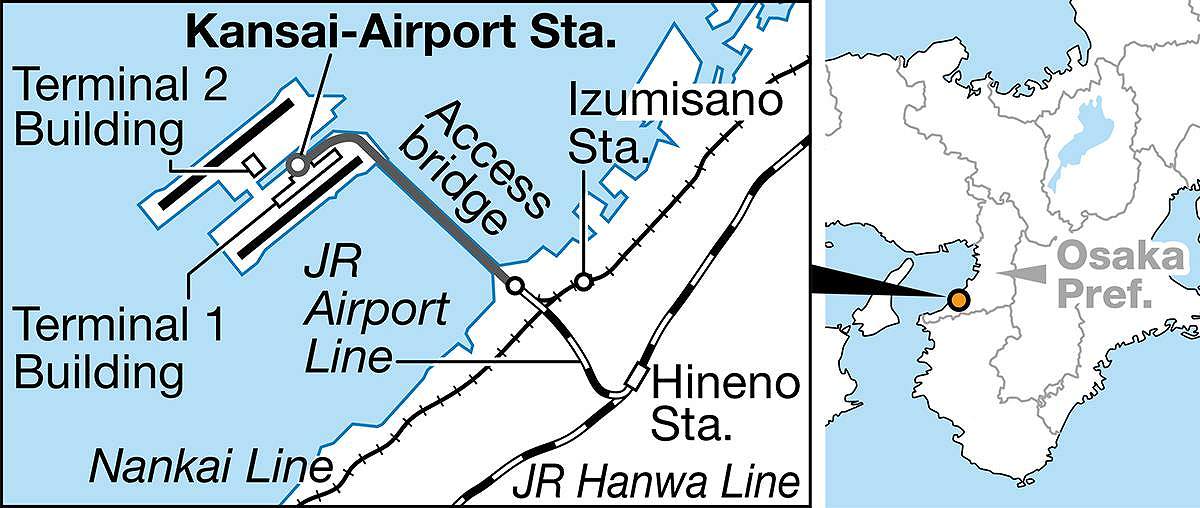
Opened in 1994 in the southern part of Osaka Prefecture, Kansai Airport is known as one of the first offshore airports. While it was Japan’s first airport in operation 24 hours a day, the airport was initially unable to increase the number of flights and was left with huge debts, leading to it being mocked as a “negative legacy.”
The turning point for the airport came in 2016, when the government sold the operating rights to the airport to a private entity while retaining ownership of it.
Now, Kansai Airports Group, which was established by a consortium comprised of Orix Corp. and other companies, operates the airport. While the number of passengers using Kansai Airport plunged during the COVID-19 pandemic, the number rebounded to 25.89 million people in fiscal 2023, almost 90% of the pre-pandemic level.
Ahead of the 2025 Osaka-Kansai Expo, large-scale renovation work is currently underway at the airport’s Terminal 1 Building. With this, the airport is expected to be able to accept 40 million international flight passengers a year in the future.
Message of thanks
On Sept. 4, the day of the anniversary, a ceremony was held at Kansai Airport to commemorate the 30th anniversary of flights between it and Los Angeles, launched by Japan Airlines on the same day as the airport’s opening.
“We will continue to offer the flights loved by travelers as a bridge between Japan and the United States,” Kumiko Miyasaka, JAL senior vice president for western Japan, said at the ceremony.
At an event held as part of the commemorations, special 30th anniversary goods such as cushions and tote bags were handed to passengers.
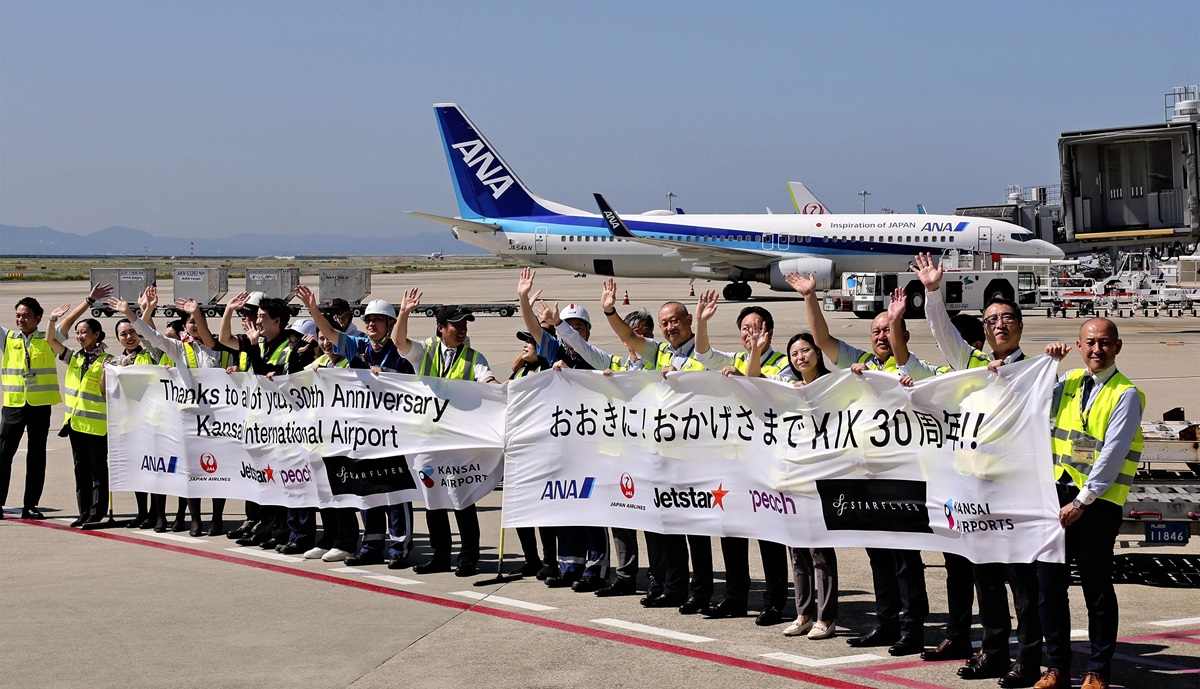
Staff from domestic air carriers hold large banners and wave to passengers at Kansai Airport.
Staff from five domestic air carriers jointly put up large banners on the tarmac near the terminal building to convey their thanks and saw off passengers on departing airplanes. One staff member wrote “Thank you” in Japanese on the ground with water.
At the terminal building, Sorayan, the official mascot character of Kansai Airports Group, appeared with two balloons — a “3” and a “0.”
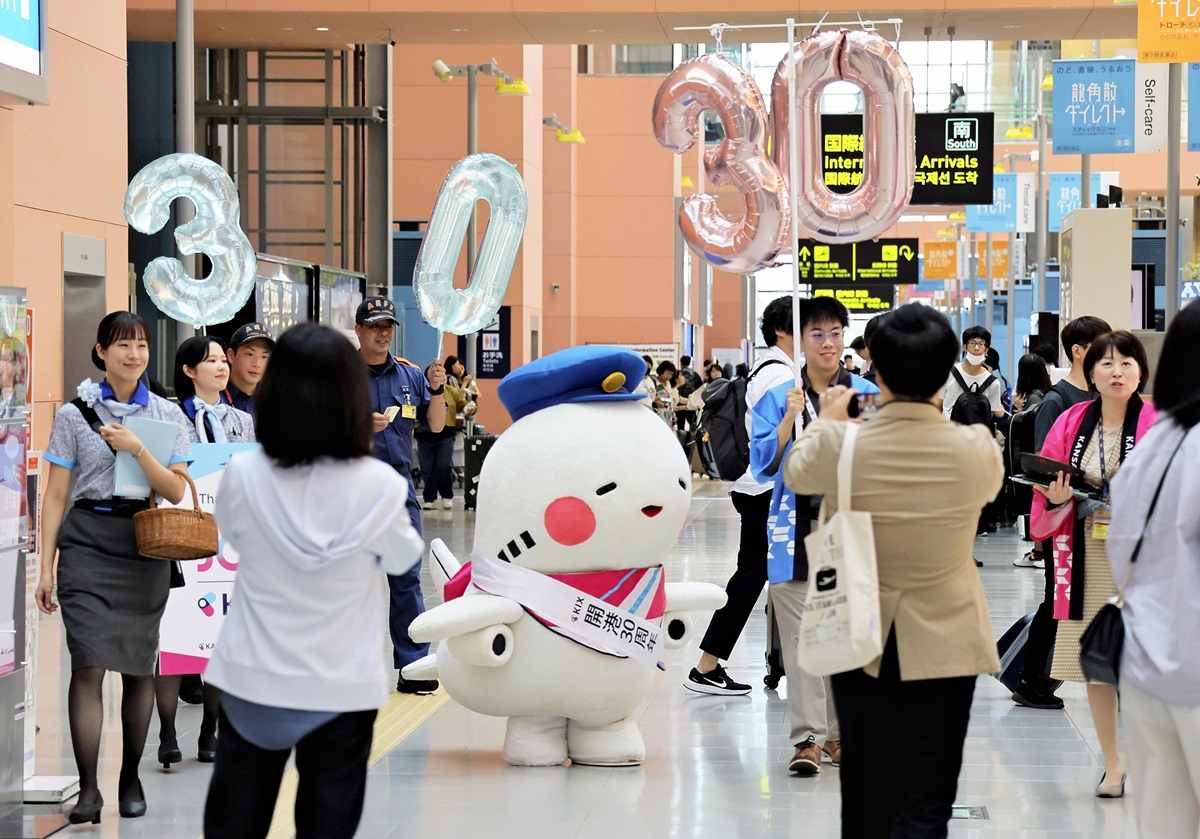
Kansai Airports Group’s official mascot character “Sorayan” appears at the terminal building of Kansai Airport to mark the 30th anniversary.
A 23-year-old female university student heading to Spain from the airport on the same day, said: “I have been using the airport since I was a little child. I will continue to use it going forward.”
Flexibility management proves key
Kansai Airport had been put under pressure due to the impact of the pandemic. However, it quickly recovered due to a flexible management style unique to private entities.
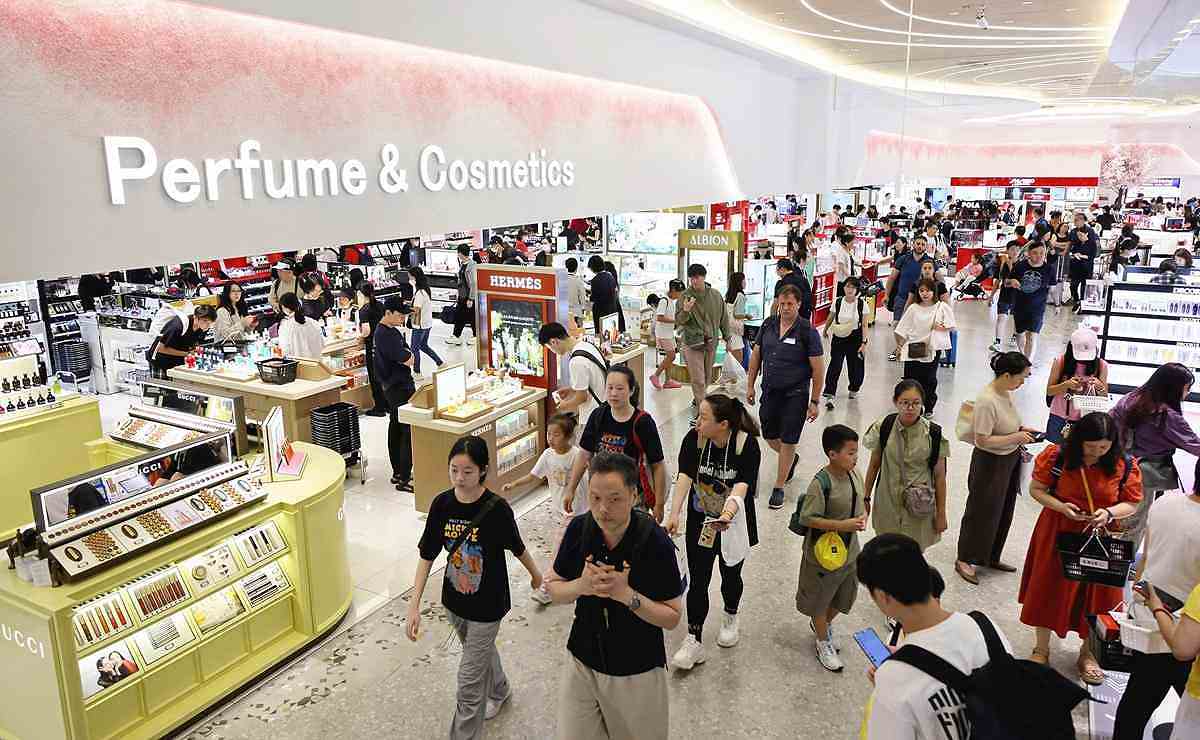
Duty-free shops at Kansai Airport offer cosmetics, perfumes, liquors and other products, comprising more than 300 brands.
A duty-free area that opened in the Terminal 1 Building at the end of last year is crowded with shopping bag-wielding foreign tourists every day.
The airport’s departure area was renovated last winter. Along the area’s curved concourse, duty-free shops selling a wide variety of products catch the eyes. This is called a walk-through duty-free store, and is designed so that passengers can see all the shops as they walk toward their boarding gate. The duty-free area covers about 2,500 square meters, one of the largest sales floors in the country.
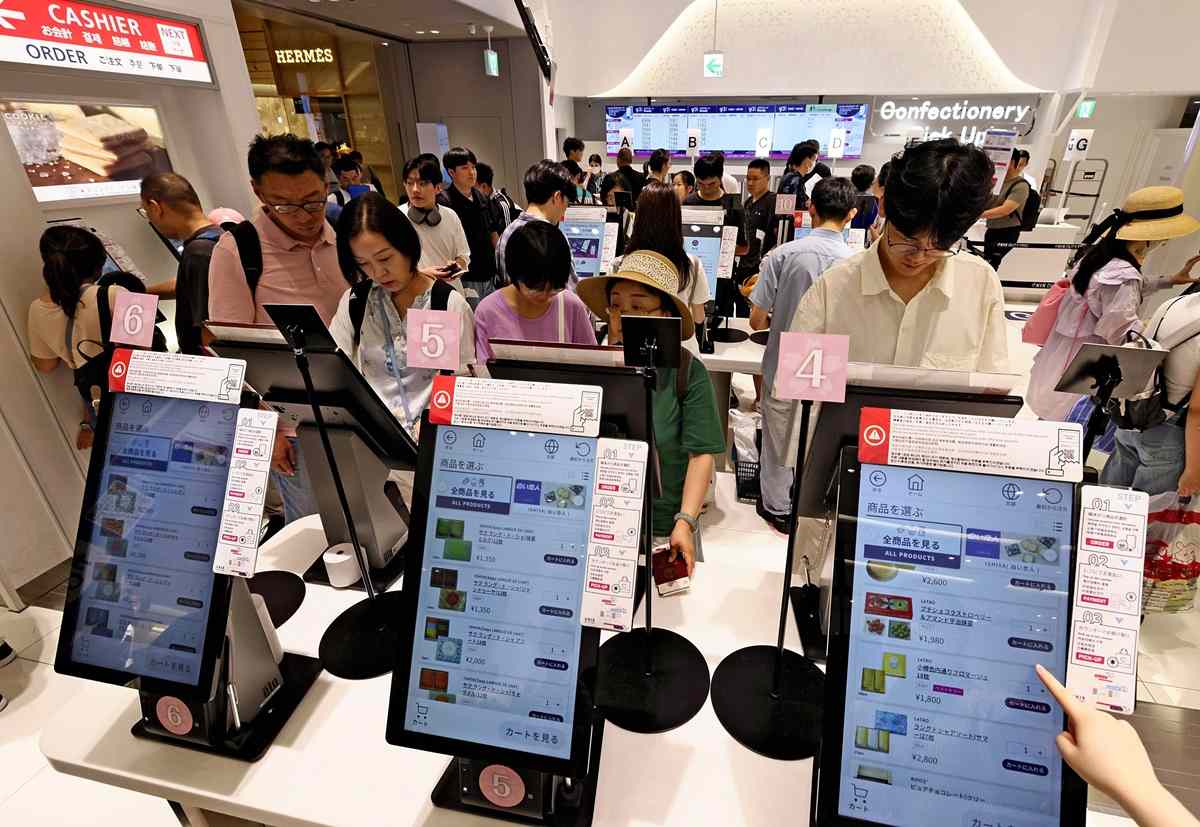
Self-ordering devices for confectionery are installed at Kansai Airport on Aug. 9. They are popular among foreign tourists.
Self-ordering devices for confectionery are particularly popular. A customer orders the confectionery of their choice on the device and a staff member will hand over all the products they ordered at a counter.
The duty-free area was developed by the private operating company Kansai Airports Group. “When it comes to operating large infrastructure facilities, private companies are able to handle various issues in a more detailed manner,” Kansai Airports President Yoshiyuki Yamaya said.
Related Tags
Top Articles in Features
-

Tokyo’s New Record-Breaking Fountain Named ‘Tokyo Aqua Symphony’
-

Sapporo Snow Festival Opens with 210 Snow and Ice Sculptures at 3 Venues in Hokkaido, Features Huge Dogu
-

Tourists Flock to Ice Dome Lodge at Resort in Hokkaido, Japan; Facility Invites Visitors to Sleep on Beds Made of Ice
-

High-Hydration Bread on the Rise, Seeing Increase in Specialty Shops, Recipe Searches
-

Heirs to Kyoto Talent: Craftsman Works to Keep Tradition of ‘Kinran’ Brocade Alive Through Initiatives, New Creations
JN ACCESS RANKING
-

Japan PM Takaichi’s Cabinet Resigns en Masse
-

Japan Institute to Use Domestic Commercial Optical Lattice Clock to Set Japan Standard Time
-

Israeli Ambassador to Japan Speaks about Japan’s Role in the Reconstruction of Gaza
-

Man Infected with Measles Reportedly Dined at Restaurant in Tokyo Station
-

Videos Plagiarized, Reposted with False Subtitles Claiming ‘Ryukyu Belongs to China’; Anti-China False Information Also Posted in Japan























